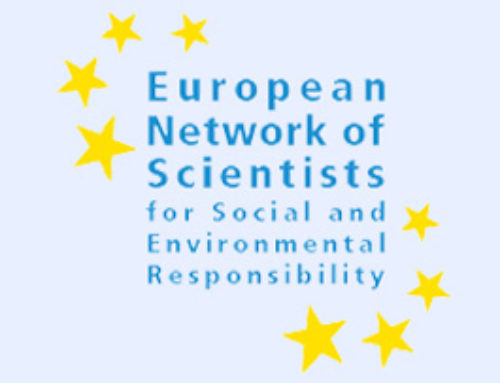Earth Open Source (EOS), 14 June 2011
Monsanto responded to our report, “Roundup and birth defects: Is the public being kept in the dark?” in a statement on its website.
Monsanto said, “Regulatory authorities and independent experts around the world agree that glyphosate does not cause adverse reproductive effects in adult animals or birth defects in offspring of these adults exposed to glyphosate, even at doses far higher than relevant environmental or occupational exposures.”
However, one of the main points of our report is that regulatory authorities have indeed agreed that glyphosate does not cause birth defects – but that conclusion is directly contradicted by the evidence in industry’s own studies. These industry studies, submitted by companies including Monsanto in support of glyphosate’s approval in the EU, showed that glyphosate causes birth defects in experimental animals. These effects were found not only at high doses, but also at mid and lower doses.
In addition, studies from the independent scientific literature, also detailed in our report and hitherto ignored or dismissed by the EU Commission and the EFSA, show that glyphosate and Roundup cause birth defects in experimental animals, as well as cancer, genetic damage, endocrine disruption and other serious health effects. Many of these effects are found at very low, physiologically relevant doses.
Monsanto said that Earth Open Source created “an account of glyphosate toxicity from a selected set of scientific studies, while they ignored much of the comprehensive data establishing the safety of the product”. This is false, since our data analysis included industry-funded research studies, some commissioned by Monsanto, which were submitted to the European Commission in support of glyphosate’s approval. We found that both these studies and studies by independent scientists contained clear evidence indicating that glyphosate and Roundup cause birth defects.
Monsanto said, “glyphosate inhibits an enzyme that is essential to plant growth; this enzyme is not found in humans or other animals, contributing to the low risk to human health from the use of glyphosate according to label directions.” However, numerous studies by industry and independent scientists detailed in our report show that glyphosate and Roundup are toxic to mammals and to human cells tested in vitro. Thus, Roundup must have other modes of action in addition to the enzyme inhibitory effect described by Monsanto. This is not surprising, as it can take decades to establish the precise mode of action of a toxin. Often, it remains unclear.
Monsanto called the studies that show problems with glyphosate “flawed”. But we repeat – among the studies that we review in our report are industry studies, including some commissioned by Monsanto, which show that glyphosate causes birth defects in experimental animals. It follows that Monsanto is condemning the industry studies – including its own studies – as flawed. Since the current EU approval of glyphosate is based on these industry studies, Monsanto’s apparent judgment that they are flawed gives us all the more reason to question the current approval of glyphosate.
Monsanto’s less than convincing attempt to rebut the conclusions presented in our paper raises additional questions regarding the logic supporting the approval of glyphosate as safe for use in the EU. It provides additional justification for our appeal that the European Commission appoint independent scientists to carry out an immediate, objective review of glyphosate and Roundup, considering the full range of industry and independent studies.
{sharethis}





Leave A Comment
You must be logged in to post a comment.